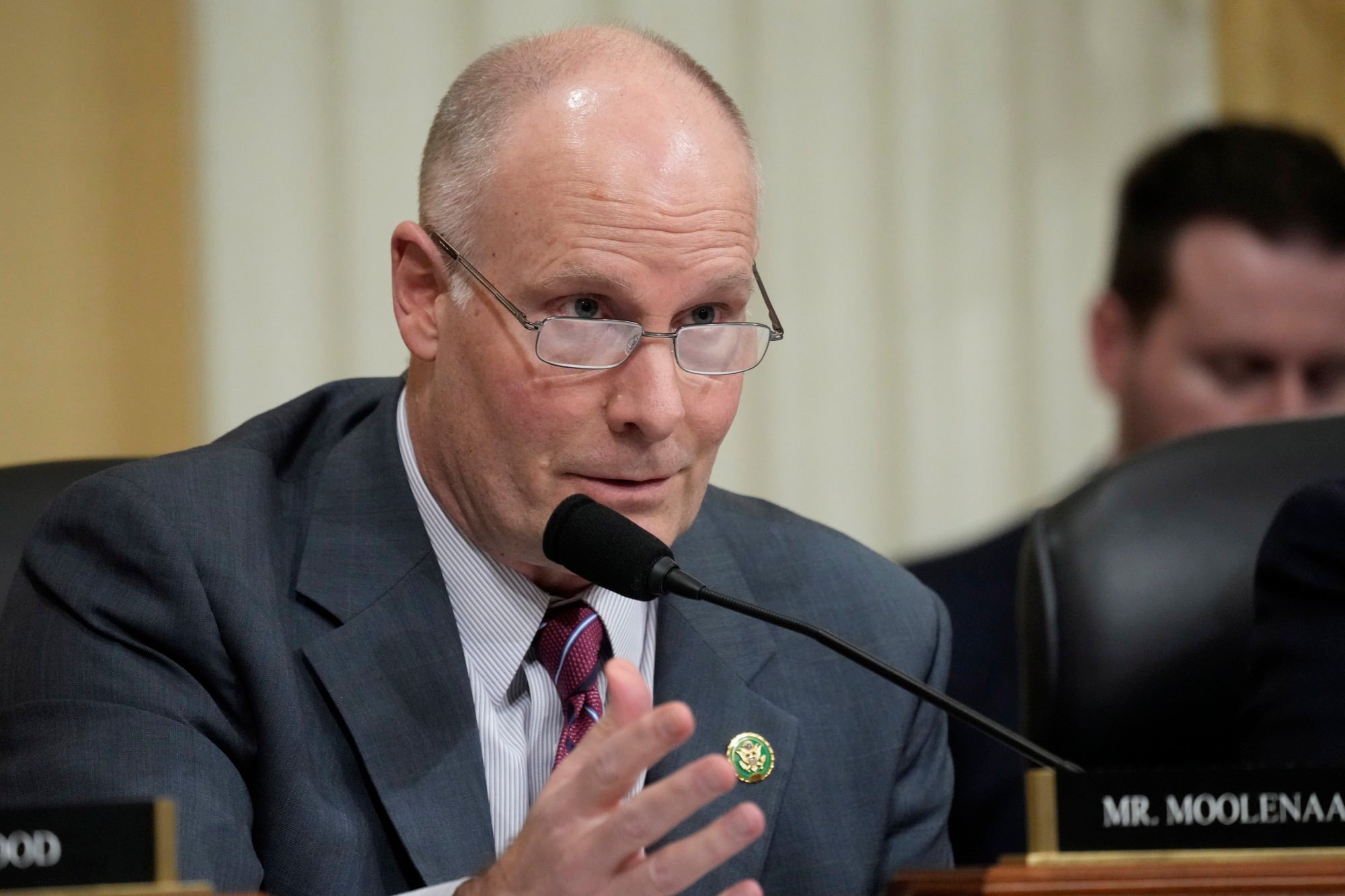US Representative John Moolenaar on Thursday introduced a bill that would revoke the normal trade relations Washington has had with Beijing for more than two decades, joining China hawks in the Senate in a bid to decouple the countries’ economies.
As proposed, the measure would set minimum 35 per cent tariffs on Chinese imports, allow for the duties to rise to 100 per cent and give the US president the ability to phase the change in over five years. Moolenaar, a Republican from Michigan, chairs the US House Select Committee on Strategic Competition Between the United States and the Chinese Communist Party (CCP).
The bill would also strip de minimis treatment for lower-value packages coming in from China, which exempts shipments valued under US$800 from import duties, taxes and rigorous screening.
Do you have questions about the biggest topics and trends from around the world? Get the answers with SCMP Knowledge, our new platform of curated content with explainers, FAQs, analyses and infographics brought to you by our award-winning team.
“Having permanent normal trade relations with China has failed our country, eroded our manufacturing base and sent jobs to our foremost adversary,” Moolenaar said. “The CCP has taken advantage of our markets and betrayed the hopes of freedom and fair competition that were expected when its authoritarian regime was granted permanent normal trade relations.”
Permanent normal trade relations (PNTR) status was passed by Congress and signed into law by then president Bill Clinton in 2000, allowing the two sides to align their trade relationship with the rules of the World Trade Organization (WTO), which China acceded to a few months later.

US Senators Tom Cotton of Arkansas, Marco Rubio of Florida and Missouri’s Josh Hawley, all Republicans, introduced a similar bill in September.
“Giving Communist China the same trade benefits that we give to our greatest allies was one of the most catastrophic decisions that our country has ever made,” Rubio, whom president-elect Donald Trump has nominated to be his secretary of state, said when the Senate bill was announced.
“Our country’s trade deficit with China more than quadrupled, and we exported millions of American jobs. Ending normal trade relations with China is a no-brainer,” Rubio said.
Moolenaar’s panel has no authority to advance the legislation to the House floor because it is not a permanent committee.
The Senate version so far has no additional co-sponsors, and Moolenaar’s does not appear to have any. In addition, there are only four weeks left in the congressional session. All pending legislation dies at the end of a session, though it can be reintroduced after a new Congress is seated.

Economists warn that revoking China’s trade status would trigger retaliation by Beijing, in turn hurting American producers of agricultural products and some other sectors.
“Our odds of Congress stripping China’s PNTR are rising, but are still pessimistic at 40 per cent,” said Henrietta Treyz, director of economic policy at Veda Partners, a business consultancy.
“Given retaliation from China hits the farming states first and most of those are governed by Republican lawmakers, those senators generally take a dim view of exposing their voters to negative economic events, she said.
These are the latest of several attempts by lawmakers in recent years to end PNTR for China.
Citing a loss of US manufacturing jobs and accusing Beijing of using forced labour, Cotton and two other Republican senators – Jim Inhofe of Oklahoma and Florida’s Rick Scott – put forward the China Trade Relations Act in 2021.
That bill, which never made it to a vote, would have required the US president to approve regular trade relations annually and allowed Congress to override the president’s decision.
More from South China Morning Post:
- China to stick with ‘around 5%’ GDP target in 2025 despite Trump tariff threat: economist
- Trump eyes Rubio for top diplomat, but will sanctions create chaos for US-China ties?
For the latest news from the South China Morning Post download our mobile app. Copyright 2024.





